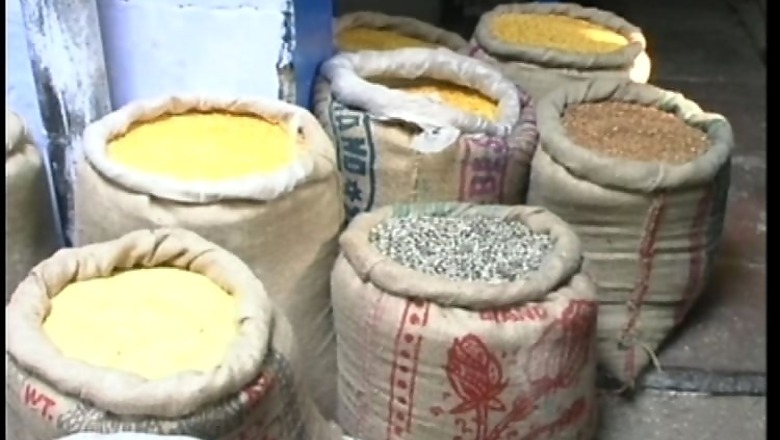
views
The rising prices of pulses is giving nightmares to the common man. The Central government, too, is under attack for not doing enough to control the spike in the costs.
The major reasons for the rising prices is that the cultivation of pulses has been seen seriously hit due to poor monsoon. In 2015, India received poorest rainfall since 2009. In 2014 as well, the production of pulses had been 2 mn tonnes less than 2013.
The prices of pulses have risen unabated for the past few months due to a fall in domestic output by about 2 million tonnes (mt) to 17.20 mt in 2014-15 crop year (July-June) owing to deficient monsoon and unseasonal rains.
Getting into action, the government is building up buffer stock by importing pulses. Also, states have been asked to lift stock of pulses lying at ports like Jawaharlal Nehru Port near Mumbai.
"Keeping in mind that some amount of stock is available with JNPT, the group decided that we build up a buffer stock preferably by imports to take care of the problem in future," Jaitley had said on Wednesday.
Sources say that government was aware of crisis in June and started process of imports but some
bureaucratic hurdles led to snags in imports in July. The state governments have been asked to mobilise existing supplies, say sources.
According to sources, only 2 state governments reached out to Centre for help in supplying imported dal. The states feel that imported dal is too costly and are upset that the Centre is not providing subsidy.
Sources said a further 2,000 tonnes of pulses will be imported to curb rising prices. This will be in addition to the 5,000 tonnes lying at the ports and another 2,000 tonnes of pulses that are in transit.
An inter-ministerial group headed by Jaitley reviewed the price situation as rates peaked to Rs 187-190 a kilogram in retail markets across the country. Jaitley said the government has decided to invoke the Rs 500-crore Price Stabilisation Fund that will be used to pay for transportation, handling, milling and processing aimed at reducing the cost of imported pulses.
Key foreign suppliers for pulses are:
-Yellow dal/green peas: Canada and Russia
- Chana dal: Australia
- Masur dal: Canada
-Urad dal, Moong dal: Myanmar
-Tur dal: Myanmar, Tanzania, Mozambique and Malawi



















Comments
0 comment